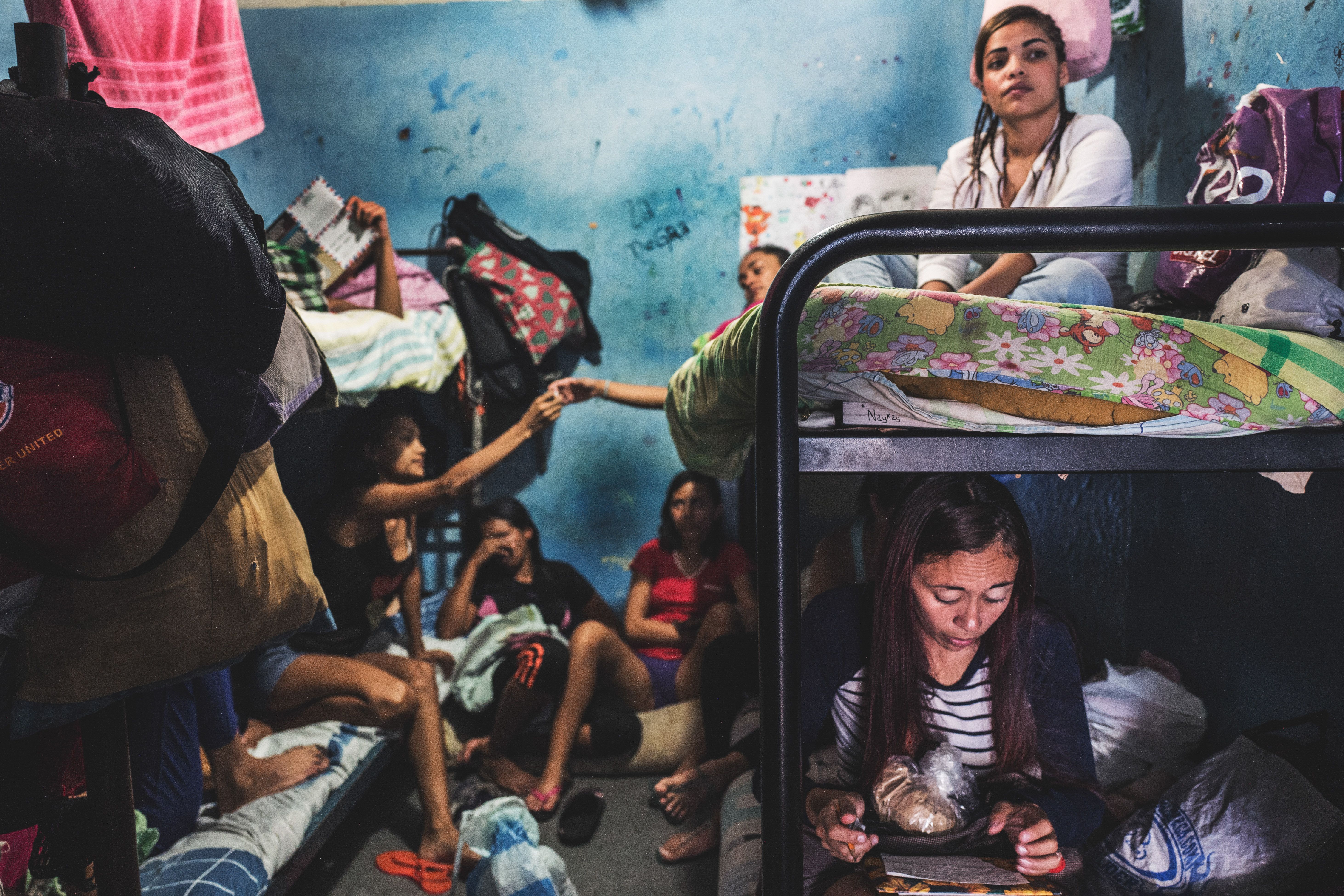A small, dark room. The walls are smeared with drawings and graffiti, next to them are plastic bags, stuffed with what people can still call their belongings.
The floor is littered with worn, dirty mattresses. There is hardly enough sleeping space for everyone. A ten-square-meter cell for more than 20 people - that's what pictures taken in Venezuelan prisons look like.
According to a report by the human rights organization "Una Ventana a la Libertad" (in German: "A Window to Freedom"), the prisons and converted police stations in Venezuela are clearly overcrowded. The detention cells in the South American country are designed for around 3,700 prisoners, but still accommodate up to 19,000 people, which corresponds to overcrowding of over 500 percent, as the NGO writes.
To read the full story in German, click here.
Ein kleiner, dunkler Raum. Die Wände sind mit Zeichnungen und Graffiti beschmiert, daneben hängen Plastiktüten, vollgestopft mit dem, was die Menschen noch ihr Hab und Gut nennen dürfen.
Der Boden ist übersät mit durchgewetzten, dreckigen Matratzen. Es gibt kaum genug Schlafplätze für alle. Eine zehn Quadratmeter große Zelle für mehr als zwanzig Menschen - so sehen Bilder aus, die in venezolanischen Gefängnissen aufgenommen wurden.
Laut eines Berichts der Menschenrechtsorganisation "Una Ventana a la Libertad" (auf Deutsch: "Ein Fenster zur Freiheit") sind die Gefängnisse und umfunktionierten Polizeiwachen in Venezuela deutlich überfüllt. Die Arrestzellen in dem südamerikanischen Land seien für etwa 3700 Gefangene ausgelegt, dennoch würden dort bis zu 19.000 Menschen untergebracht, was einer Überbelegung von über 500 Prozent entspricht, wie die NGO schreibt.
